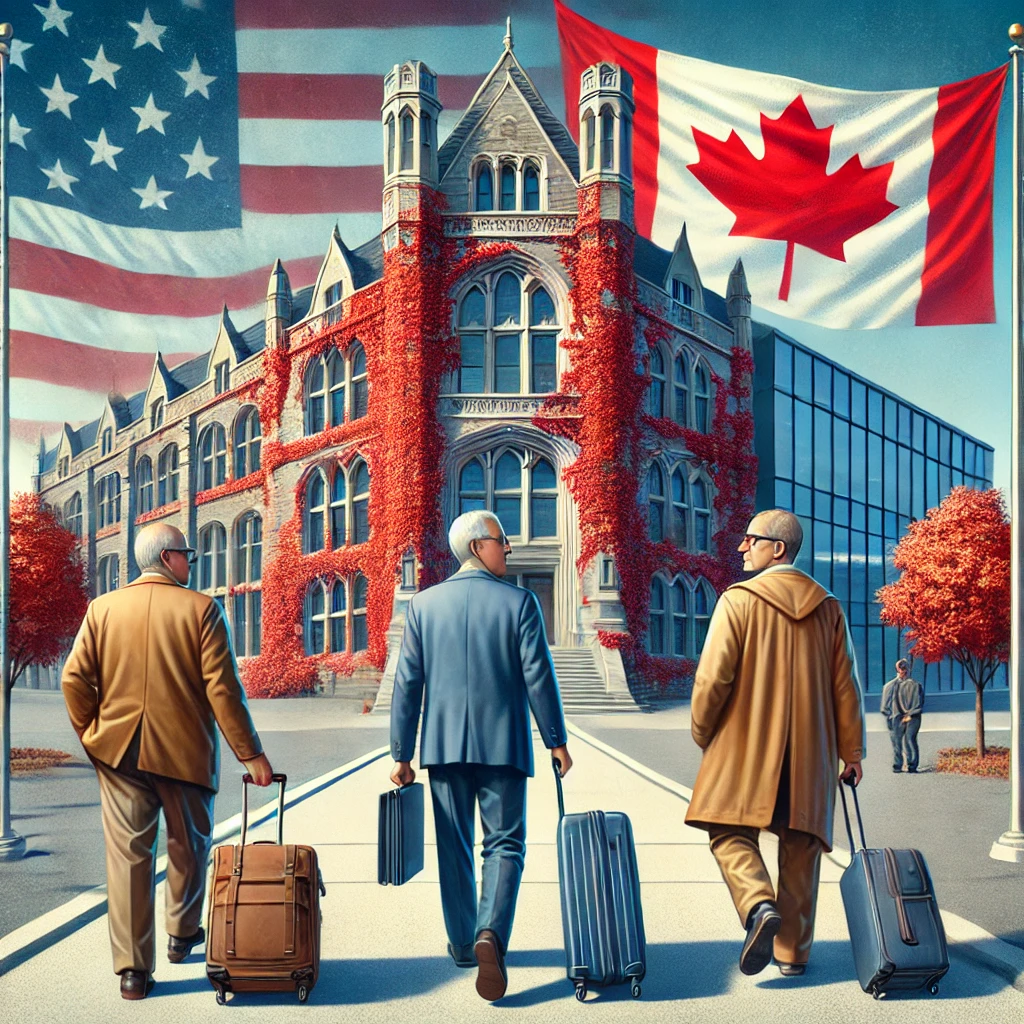In a significant move that underscores the ongoing concerns within the academic community over political and social shifts in the United States, three distinguished professors from Yale University have announced their departure for a Canadian university. Their decision, they say, is driven by increasing apprehensions about the policies and direction of former U.S. President Donald Trump and their impact on academia, research, and freedom of thought.
The Professors and Their Contributions
The three professors, who have each made substantial contributions to their respective fields, are highly respected scholars in political science, environmental studies, and constitutional law. Their expertise and academic work have garnered international recognition, making their departure from Yale a notable loss for the university and the broader U.S. academic community.
- Dr. Michael Adams – Political Science Dr. Adams is a renowned political scientist specializing in democratic institutions and governance. He has spent over two decades at Yale, publishing extensively on the effects of populism, authoritarian tendencies, and political polarization in the United States. His work has provided critical insights into the rise of leaders like Donald Trump and the implications for democratic stability.
- Dr. Eleanor Whitman – Environmental Studies Dr. Whitman is a leading environmental scientist who has been at the forefront of climate change research. She has advised multiple governmental agencies and has been an outspoken advocate for science-driven policy decisions. Under the Trump administration, she openly criticized policies that rolled back environmental protections and undermined scientific research.
- Dr. James Richardson – Constitutional Law A legal scholar with expertise in constitutional law, Dr. Richardson has been a key voice in analyzing the impact of Supreme Court decisions and executive actions on civil liberties. His critiques of Trump’s judicial appointments and executive orders have been widely cited in legal circles.
Reasons for Their Departure
The professors have cited multiple reasons for their move to a Canadian university, including concerns about academic freedom, political interference in research, and the overall climate for scholars under Trump’s influence.
1. Threats to Academic Freedom
Throughout Trump’s tenure, many academics felt that their ability to conduct research and express their findings freely was under threat. Governmental pressure on universities, funding cuts to research institutions, and an increase in political interference in scholarly work created a challenging environment for researchers, particularly in politically sensitive fields such as climate science and constitutional law.
2. Immigration Policies and Inclusivity
The restrictive immigration policies implemented by the Trump administration had a profound impact on universities, which rely on international students and faculty for intellectual diversity. The travel bans, visa restrictions, and uncertain policies around work permits created obstacles for global collaboration and talent retention. The three professors expressed concerns that such policies were making the U.S. less attractive for scholars worldwide.
3. Climate Science and Policy Concerns
Dr. Whitman’s departure, in particular, is closely linked to the Trump administration’s rollback of environmental regulations and withdrawal from international climate agreements like the Paris Accord. She has been vocal about the need for science-based policy decisions, and the Canadian university’s commitment to sustainability and green initiatives played a major role in her decision to move.
4. Judicial and Legal Concerns
As a constitutional law expert, Dr. Richardson has been deeply concerned about the erosion of democratic norms and the influence of Trump-appointed judges on critical issues such as voting rights, reproductive rights, and executive power. He believes that continuing his research and teaching in a more stable and predictable legal environment will allow him to better contribute to ongoing debates on constitutional law.
The Appeal of Canada’s Academic Environment
Canada has long been recognized as a country that values academic freedom, research funding, and inclusivity. The university that has recruited these professors has an excellent reputation for fostering intellectual discourse and encouraging cross-disciplinary research. Key factors that influenced their decision include:
- Strong Government Support for Research: Canada’s funding agencies prioritize scientific research, including climate studies, democracy, and legal frameworks.
- Progressive Immigration Policies: Canada’s more inclusive stance on immigration makes it easier for international scholars and students to thrive.
- Commitment to Diversity and Inclusion: Canadian universities emphasize equity, diversity, and inclusion, ensuring a welcoming environment for faculty and students from diverse backgrounds.
Broader Implications for U.S. Academia
The departure of these Yale professors is not an isolated case. In recent years, numerous academics across various disciplines have either moved abroad or expressed concerns about the state of higher education in the U.S. under Trump’s policies. This brain drain poses a challenge for American universities, which risk losing top talent to institutions in countries that provide better research conditions and fewer political constraints.
Moreover, this exodus of intellectual capital may have long-term effects on the ability of U.S. universities to remain at the forefront of global academic and scientific advancements. As Canada, the European Union, and other nations continue to invest in higher education and academic research, the U.S. faces increasing competition in retaining and attracting world-class scholars.
Conclusion
The decision of these three Yale professors to leave for a Canadian university highlights the growing concerns among academics regarding political interference, research funding, and academic freedom in the United States. Their move signals a broader trend of scholars seeking environments where intellectual pursuits can thrive without external pressures. As the world continues to grapple with challenges such as climate change, democratic governance, and civil rights, the ability of researchers to work in a supportive and independent academic setting remains more crucial than ever. Whether the U.S. can reverse this trend in the coming years will depend on the policies and priorities set by future administrations.
